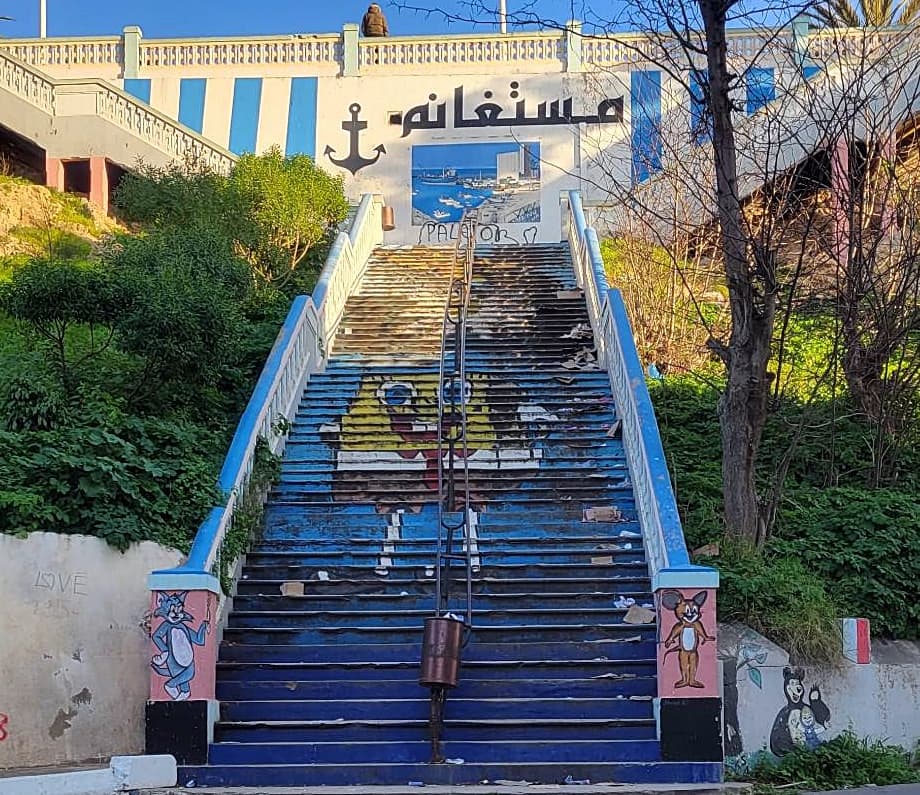 KEEPING THE HUMAN SPIRIT ALIVENov 4, 2025
KEEPING THE HUMAN SPIRIT ALIVENov 4, 2025English
Español
 KEEPING THE HUMAN SPIRIT ALIVENov 4, 2025
KEEPING THE HUMAN SPIRIT ALIVENov 4, 2025
As a Ph.D. candidate in Politics, my research on social movements pushed me to collect empirical data. The available information on the internet, books, and journals was not enough to come up with a satisfying answer to my research question. I had to interact directly with people who have experienced much of their lives under an authoritarian regime. I decided to go to Algeria, a country well-known for its tradition against oppression, where huge mass uprisings recently occurred against the government. I had the opportunity to discuss with lifelong activists who operated under an authoritarian regime, a fascinating but dangerous task for me.
I want to share with you some of my experience on the ground, so you can learn what to expect in an authoritarian state ruled by a military dictatorship as a researcher or person interested in social issues. I spent three months in Algeria collecting data for my research and conducting interviews with active participants in a social movement baptized as the Hirak. This anti-regime social movement lasted from February 2019 to March 2021. The movement's main objective was to democratize the country and oust the military from politics—a real tour de force. However, the Hirak stopped due to the Covid-19 pandemic, which indirectly served the regime's interests because it was a legitimate reason to break weekly marches.
Before my departure, I agreed to meet some friends who already lived there. I did not know all of them personally, but their relatives were my friends, and they served as reliable connections. Five people promised to help me during my field trip. A week before I went to Algeria, one of my contacts ignored my calls, stopped responding, and ghosted me. Once I arrived in Algeria, I called the person who was supposed to provide me shelter and help with my project. However, he told me to leave him alone because he did not want to help me anymore. I was getting very anxious about the research because I was getting pushed away even from people I personally knew.

It was the first time in my life that I visited Algeria, and I had lost two connections already. I tried my third connection, and he helped me find some people to interview. Due to security reasons and research objectives, I had to follow a snowball sampling method. Hence, the interviewed people had to refer me to the next person to interview. However, this method is tough to implement and follows the latest procedure. People do not understand how empirical data gathering is essential for your research, and they do not want to make an effort to help. Sometimes the person does not want to talk about his participation to other people, particularly strangers. Although little by little, I was able to construct a trustworthy network, snowball sampling is complicated under authoritarian settings.
One day I was sitting with an interviewee, and he called his friend to discuss my research. After a long conversation, he told me that his friend was worried about my real identity. I could be a regime´s collaborator, and I could be a threat to them. I understood his concerns, but I responded that he could also be an agent, and in that case, I was risking my security also. On the one hand, I could not convince the person over the phone, but on the other hand, I noticed the discomfort and malaise in the person in front of me. His look changed significantly, and he rapidly left the room.
The regime no longer tolerated street protests, and repression started harshly on activists and protesters. The secret services were tracking rebels and dissidents, and an atmosphere of cautiousness reigned over the country. Many activists told me my timing was not well chosen because the weekly marches stopped recently, and repression was active again.
Some essential details need to be discussed to understand the critical atmosphere. Firstly, I could say that timing is vital when interviewing people living in an authoritarian regime. Secondly, well-established references are essential to building a reliable connection between the researcher and the potential interviewees. Unfortunately, in a snowball sampling method, not only must the researcher be trustworthy, but also the reference who must persuade their connections that researcher is a reliable person, and the interview will not have repercussions of any sort.
People will let you down, you will feel anxiety due to potential security risks, and you might want to quit. Never! Never think of leaving the ground as long as your data collection is not complete gather. Once you have your empirical data, you will feel that you have accomplished your mission as a researcher. Then you could write your thesis or analysis with complete confidence…
Salih Akpinar is a Ph.D. candidate at the Department of Politics at the University of Ottawa. His research focuses on authoritarian regimes, social movements, and activism in the Middle East and North Africa. He is also interested in Political thought and history.